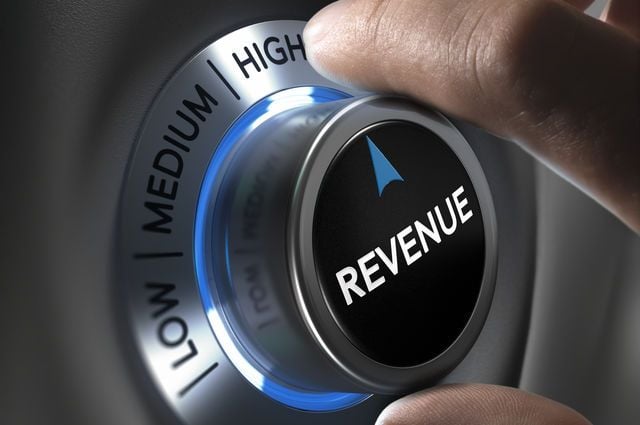What kind of Revenue Manager do we need right now?
16 experts shared their view
Thirty years in, revenue management is still only fully embraced by about a third of organizations. Meanwhile, the playing field has shifted:
- "Right time, right place" is and always was more about marketing than revenue science
- Distribution and channel mix often matter more than price itself
- Traditional segmentation is becoming obsolete
- AI is already booking, pricing, and making backend decisions
- Total revenue (rooms + F&B + ancillaries) is still as elusive as it was 15 years ago
- Data geeks who couldn't tell stories turned into storytellers that don't understand data
The question is no longer whether revenue management can lead but what skills, mindset, and capabilities today's Revenue Manager must bring to stay relevant, add value beyond automation, and drive profitability across the whole business.
If the real question is about skills, mindset, and capabilities, then here's my take:
- Skills: a Revenue Manager today must think strategically, not just tactically. Revenue management is about defining where the business should go in terms of product and revenue in the next 3–5 years. For the tactical implementation, Software & Automation are a great support, but they "stay in the present", not look into the future.
- Mindset: the ability to connect the dots between product, marketing, pricing, distribution, and sales — building one coherent path to the same goal.
- Capability: leadership. Not just managing systems or numbers, but convincing people that the vision is right and worth pursuing, and making sure everyone contributes to it.
That's how RM moves beyond automation and truly drives profitability across the whole business.
A broader skill set — especially in marketing — is becoming increasingly beneficial. Since specialized tasks can now be handled perfectly by AI, commercial roles are moving closer together. This shift makes broad, cross-functional skills more important than ever. That would be my pick.
The Revenue Manager we need today looks very different from the one many hotels still have in place. The role can no longer be defined by Excel spreadsheets and static reports. The markets move too fast, the data is too complex, and the opportunities are too big to leave in the hands of manual processes.
The Revenue Manager of today must be closer to a Chief Profitability Officer.
That means:
- Tech-first mindset — embracing automation and AI to handle data, freeing their time for strategy.
- Commercial connector — breaking down silos and aligning Sales, Marketing, and Distribution into one commercial vision.
- P&L owner — sitting at the table where profitability decisions are made, with the autonomy to act, not just advise.
- Total revenue driver — optimizing not just rooms, but F&B, spa, golf, events, and every other revenue stream.
- Change agent — leading the tough but necessary conversations, from replacing static contracts to pushing hotels toward dynamic models.
The Revenue Manager we need right now is not a number-cruncher. They are the strategic hub of the hotel's commercial engine — and the sooner we empower them to take that role, the faster our industry will evolve.
The "right time, right place" mantra treats humans like logical machines, ignoring emotion and gut feeling, which ultimately drives decisions.
As a former revenue manager turned to marketing, I've witnessed something traditional RM theory can't explain: sometimes raising prices increases occupancy. You can't solve this with spreadsheets. It's pure psychology.
Traditional segmentation is pointless. What purpose does it serve other than reporting, considering most hotels accept everybody as long as they pay? Hospitality is one of the few sectors where "expanding" matters more than "narrowing" to segments.
AI needs babysitting. Algorithms handle pricing but are prone to errors with incomplete data. If revenue managers don't understand data quality issues, that's a recipe for disaster.
Revenue can't be separated from marketing. There's no magical "right" price in isolation. Price only makes sense in relation to perceived value. Revenue and marketing should work together on being perceived as higher quality, thus higher value, thus higher budgets.
Behind every booking is someone making an emotional choice. The famous "right price" becomes a feeling rather than a fixed tag.
Related article by Alessandro Crotti
It's important to understand that today's revenue managment team is only one of the property's revenue generation teams, which include the Sales, Marketing, CRM and the emerging Agentic AI Teams.
As industry professionals, revenue managers, sales, marketing, CRM and Agentic AI specialists are cut from a different cloth: ex., revenue managers are data-driven and analytical, whereas sales specialists are hustlers while marketing people are intuitive and creative.
Unfortunately, most hotels find it difficult to overcome the isolation among these teams, plus the existing: a) "Data Islands": Guest data is frequently fragmented across different systems, preventing a comprehensive customer view, and b) Technology Gaps: Legacy tech stack, unable to support the connectivity and integration needed for modern revenue optimization.
Today's complex travel customer journey requires an integrated strategy to engage, acquire, service, and retain travel consumers across multiple digital touch points and across all digital channels and devices, including the emerging AI search platforms and personal AI agents.
This necessitates a single-minded team at the property: The Revenue Generation Team, consisting of the RM, Sales, Marketing, CRM and Agentic AI specialists, working together to acquire, engage, and retain guests; increase revenue, especially direct bookings and optimize performance and profits.
IDeaS recently hosted its annual Converge client conference under the theme "Bold Moves, Big Impact: A New Era in Hospitality." Fitting, as bold leadership in commercial and revenue strategy is essential in this challenging environment. With declining ADRs and flat RevPAR growth in the U.S., revenue leaders must innovate—exploring new revenue streams, smarter marketing spend, and alternative distribution channels to drive profitability across the enterprise.
Strategic thinking alone isn't enough. Leaders must make bold, sometimes controversial decisions to stay ahead. Data storytelling is now a critical skill—executives expect revenue leaders to interpret dashboards and translate data into compelling narratives that inspire action. It's not just about what the numbers say, but what they mean and what to do next.
Curiosity is key. Asking "what if," testing new ideas, and taking risks fuels innovation and disruption. Playing it safe is no longer safe.
Today's revenue manager is more than a strategist—they're a storyteller, collaborator, conscience, and catalyst. Their ability to lead with insight and bold thinking will shape the future of hospitality profitability.
Related article by Klaus Kohlmayr
The state of revenue management is an illusion of effectiveness, held back by those who prioritize their jobs over the business. Industry is stunted by a lack of experience and a narrow focus on yesterday's metrics. The role is no longer to get in the way of progress but to drive it.
Recognize that real effectiveness is a function of tools and intelligence. Work at the speed of data; it's infinitely faster than human-led processes. Trust tools to execute the work they can, based on information you cannot grasp or compute. Your value is no longer in the past but in the strategic decisions made for the future.
The role is to focus on the aspects of the business that technology cannot yet support—the whole business beyond the room. Stop thinking that market demand equals your demand; focus on what's going on within your walls. This isn't about segmentation; it's about revenue optimization for the entire business, always with the customer in mind.
Embrace tech, let it work for you, and stop getting in the way. It's time to amplify your leadership with data. Your future relevance, and the business"s profitability, depend on it.
The evolving landscape of revenue management demands a new type of Revenue Manager—one who is data-savvy, strategically holistic, and highly adaptable. Traditional practices, such as fixed segmentation or purely price-driven tactics, are becoming increasingly ineffective as distribution strategies and channel mix create a greater influence on outcomes. With AI and automation increasingly handling functions such as booking and pricing, Revenue Managers must go beyond transactional tasks and provide strategic cohesion across all revenue streams—including rooms, F&B, and ancillary services—despite persistent measurement challenges.
The modern Revenue Manager should also blend strong data literacy with the ability to tell compelling, actionable stories. It’s no longer sufficient to simply understand data or generate reports; success relies on communicating insights that drive cross-departmental collaboration and support executive decision-making. This requires critical thinking, customer-centricity, and technological fluency, along with an openness to challenge legacy structure and outdated segmentation.
Ultimately, successful Revenue Managers are agents of change—proactively harnessing new technologies, navigating distribution complexities, and driving profitability. They must serve as true business partners, committed to continuous learning and innovation, ensuring that revenue management isn’t just relevant, but a key driver of organizational success.
The question isn't whether revenue management can lead—it already does. The challenge is what today's revenue managers must bring to stay relevant, add value beyond automation, and drive profitability across the entire business.
Tactical levers are increasingly automated. What sets a great revenue leader apart is the ability to turn data into stories, connect insights across functions, and drive alignment. Finance, sales, operations, marketing, and ownership don't just need numbers—they need context, clarity, and a common direction.
Mindset matters as much as skillset. Yesterday's "spreadsheet jockey" won't survive. Curiosity, adaptability, and the courage to challenge convention are now essential. Leaders must thrive in uncertainty, experiment with new tools, and make confident decisions when data is incomplete.
Capabilities also have to expand. Revenue strategy can't stop at rooms. It must encompass F&B, events, branded residences, and every revenue stream that shapes the P&L. Technology automates, but humans orchestrate—ensuring profitability, protecting positioning, and aligning with guest experience.
Today's revenue manager is no longer the keeper of fences and reports. They are commercial strategists—sensing shifts sooner, acting smarter, and connecting the dots across the enterprise so revenue management becomes a true driver of business performance.
I have the impression that automation is set to colonize ever larger portions of the Revenue Manager's role. This is not a distant scenario but a process already unfolding with the inevitability of the tide. Functions such as channel control, rate logs, and flow optimization are destined to be absorbed by systems with greater computational power. Here precision matters more than creativity, and machines do not hesitate when faced with repetitive, numerical decisions.
If I were to draw a line forward, I would see revenue management as the first department to move from humans in the loop, to humans on the loop, to humans out of the loop. Not because humans are irrelevant, but because the discipline itself tends toward maximum standardization. In this sense, creativity risks becoming an obstacle, while automation brings coherence, speed, and control.
The real question then is where human value resides once calculation is delegated. I believe the Revenue Manager of the future will no longer guard the levers of pricing but act as a strategic interpreter of increasingly autonomous systems, inserting vision, intuition, and cultural awareness into the algorithmic flow.
How? Well, I don't have an answer for that...
The Revenue Manager of today isn"t just interpreting data—they"re shaping strategy. In a world where automation handles the basics, the real value lies in those who can connect the dots across distribution, marketing, pricing, and demand. They"re not just storytellers—they"re decision-makers who turn insights into action.
At Amadeus, we see firsthand how the best Revenue Managers operate. They use tools to forecast demand, optimize pricing, and identify revenue opportunities across segments and channels
They"re fluent in data, but they also know how to influence cross-functional teams—from sales to operations—to align around profitability goals.
Today"s Revenue Manager must be:
- Technically agile: Comfortable with RMS/PMS integrations, prescriptive analytics, and multiple other tools and systems
- Commercially sharp: Able to translate occupancy forecasts and market trends into pricing strategies that drive RevPAR and total revenue
- Collaborative by design: Working across silos to ensure that revenue decisions reflect broader business priorities, not just isolated metrics
- Strategically proactive: Using forward-looking data to anticipate market shifts, not just react to them
In short, the Revenue Manager we need now is a hybrid: part analyst, part strategist, part influencer. They"re not just managing revenue—they"re driving it.
Revenue managers are consumed by data extraction and spreadsheets, optimizing room revenue in isolation instead of advancing to total revenue across all areas. Management remains content with rate tweaks and reports, and doesn"t see the need for change, so progress stalls. With automation reducing manual compiling and basic analysis, more time is available for higher-value work.
The prevailing mindset in revenue management has been one of control, with core skills focused on room data. Few possess the capabilities for total revenue management, customer acquisition cost (CAC) management, or profit flow-through. Without these skills, revenue managers lack the business acumen needed to maximize revenue and profits.The path forward is clear: elevate to total revenue, manage CAC with discipline, and understand how each segment and channel contributes to profit. The shift requires the right tools: a hotel-specific BI platform that automates data collection, unifies room/F&B/M&E data, highlights CAC and profit flow-through, and supports total revenue decisions. If RMs make this leap, they will remain relevant; if not, AI will replace the data automation, analysis, and reporting they cling to. Ironically, this is an opportunity, as most leaders still do not recognize the full potential of revenue management.
First of all, I disagree with all the statements on the viewpoint. Sophisticated Revenue Management is gaining traction and is now embraced by an ever-growing number of organizations.
That said the Revenue Manager of the future should be a strategist with a 360° mandate:
- Market and demand intelligence: Understand from where and where demand is forming and why.
- Demand generation and tactical distribution: shaping demand, optmizing channels and investment.
- Planning and strategy: connecting all revenue streams: Rooms, F&B, Ancillaries into one profit lens.
- Execution: inventory and pricing, yes, but now heavily automated but supervised with judgment and overal brand / market positionning
- Analytics, Technology, AI and prompt engineering.
And finally come the real differentiators: leadership, critical thinking, bias awareness, communication that convinces, and tactical empathy to move agenda forward.
Revenue management and marketing are consolidating into integrated commercial strategy roles that architect demand (in ways that are beneficial to the hotel) and monetize it simultaneously.
For decades, marketing drove demand while revenue management optimized pricing. That model is obsolete. At Curacity, when premium media brands feature a hotel, that's not a marketing moment followed by a pricing decision. It's a single revenue opportunity where premium positioning and packaging translate to pricing power.
Hotels require demand architects who can synthesize both disciplines, rather than specialists working in silos, to engineer profitable demand.
The role is increasingly establishing itself as a strategy leader inside the incredibly rapid changes that lately affect the market, demand, and technology. Today, simply analyzing data is no longer sufficient: it is necessary to engage deeply with the various business functions.This means integrating in our day-to day work aspects such as digital strategy, marketing, online visibility, sales, positioning and growth objective planning. Simply said: Revenue meetings must turn into Strategy meetings with all that the word "Strategy" involves and that the Revenue/Strategy manger must be able to handle.
To thrive in a rapidly changing environment indeed, the revenue manager must possess intuition, critical thinking, communication skills, and flexibility. It is essential to develop a 360° holistic view of all aspects of the commercial domain to build solid basis. Must operate cross-functionally - beyond rooms, beyond numbers and focusing on the overall profir goal - and think out of the box, going beyond what AI or data analysis alone can provide. Initiative, creativity, and the ability to identify innovative strategies to differentiate from competitors are crucial. Only in this way can one consistently lead solid and sustainable strategies that adapt to evolving demand dynamics and generate long-term value.
One of the biggest challenges is the quality and fragmentation of the data that revenue managers use to make decisions. The data is siloed across multiple systems (PMS, RMS, BI, CRS), and it takes real skill to understand its relevance, limitations, and quality.
The next challenge is to put the data in a digestible and understandable format that shows the whole picture (it's like putting together a puzzle).
And last but not least, the revenue manager should be able to explain the story behind the numbers to all stakeholders. It's essential that the team understands the numbers, suggested actions, and contributes their own ideas.
What about AI? It can be a good assistant if it has quality data. Who can provide the correct data to AI and ask the right questions? The revenue manager.

















